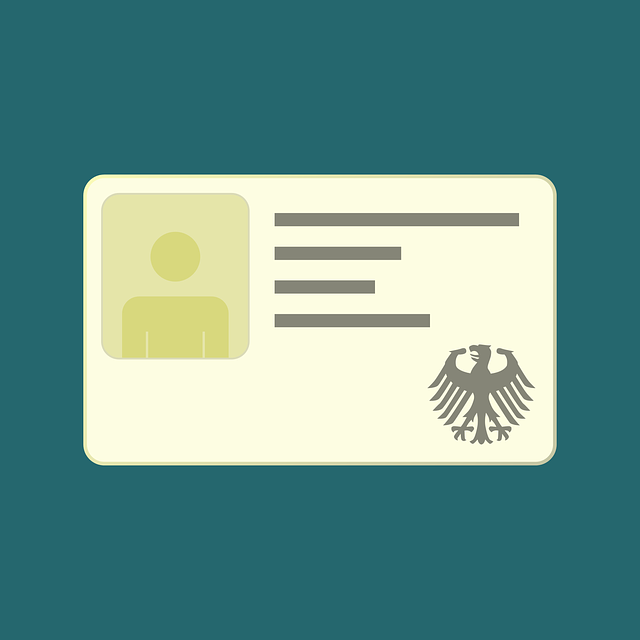You’ve been crushing your budget goals, building that emergency fund, and rocking your adulting like a boss. But what if disaster strikes? A fire, a flood, or even a misplaced wallet can throw your world into a financial frenzy. That’s where your secret weapon comes in: the Family Emergency Binder!
Think of it as your financial and personal information fortress. It’s a one-stop shop for everything crucial, keeping you cool, calm, and collected during emergencies. Let’s dive in!

What is an Emergency Binder and Why Do You Need One?
Think of it as a physical lifeline, a central hub for all your crucial personal and financial information. It’s a binder (or box, or folder – whichever suits your fancy!) that stores copies of essential documents, contact details, and even household records.
It’s your personal information fortress, readily available whenever you need it most. A tailored family emergency binder is a way to look after your loved ones after you’re gone by lessening the burden of after-death necessities.
According to BinderTek, “In the midst of an emergency, maintaining a clear head and a composed approach is essential, and that’s where an emergency binder comes in. Acting as a comprehensive place for your most crucial family information, documents, and emergency plans, this binder ensures that you can swiftly access vital details when you need them most. The peace of mind derived from having all your essential information in one easily accessible location is invaluable. “

Benefits of Creating Your Own Family Emergency Binder
Life can be unpredictable, and emergencies can strike when least expected. Having a family emergency binder can provide peace of mind and reduce anxiety in case of an emergency.
Here are the benefits when you create your own emergency binders:
Reduces Stress and Anxiety
During a crisis, the last thing you need is the added stress of searching for important documents. A well-organized family emergency binder keeps everything at your fingertips.
It allows you to focus on what truly matters – your family’s safety and well-being.
Centralized information
A family emergency binder can provide a single location for all important information, such as documents, financial accounts, and emergency plans.

Quick and Easy Access
No scrambling through filing cabinets or digging through emails.
Your family emergency binder provides instant access to critical information, saving you precious time in an emergency.
Ensures Continuity of Care
Whether it’s medical information or insurance details, having these documents readily available can be crucial for first responders and medical professionals in an emergency.

Peace of Mind
Knowing your family has access to this vital information provides peace of mind for everyone involved.
It allows them to act quickly and efficiently during a crisis.
Helps loved ones
An emergency binder can help loved ones know where to find important information, especially if the person with the binder is no longer able to provide it.
Adaptable
Emergency plans can be updated in real-time to account for changing circumstances.
In a nutshell, a Family Emergency Binder is your proactive shield against the unexpected. With all your essential documents organized and readily available, you can face any emergency with confidence and a cool head.

What to Include in Your Emergency Binder
Creating your own emergency binder is your lifeline during a crisis, so it’s crucial to include all your important documents that will be most essential in those situations. Here’s a breakdown of a variety of key documents to consider:
Insurance Information
From health insurance to homeowner’s coverage, keep copies of your life insurance policy, coverage details, and contact information readily available. Prepare health insurance cards too.
A 2023 study by the Federal Reserve found that accessibility to insurance details can save families thousands in the aftermath of an emergency.
According to it, “Relatively small, unexpected expenses, such as a car repair or a modest medical bill, can be a hardship for many families, especially those without a financial cushion. When faced with a hypothetical expense of $400, 63 percent of all adults in 2023 said they would have covered it exclusively using cash, savings, or a credit card paid off at the next statement (referred to, altogether, as “cash or its equivalent”).

Legal Documents
Wills, power of attorney, marriage certificates, divorce decrees, adoption papers — these are the documents that speak for you when you can’t.
Make sure they’re all in one place, so your wishes are always clear.
Financial Documents
Bank accounts, investments, retirement plans — think of these finances as the blueprint of your financial world.
Include copies of account information, credit card statements, real estate deeds, and mortgage info, so you’re always in control.
Household Expenses
Receipts, bank statements, utility bills – these are your financial history detectives.
Keep these resources organized for easy reference and potential insurance claims.
Identification Documents
Social security cards, birth certificates, and other forms of legal ID — these prove who you are when it matters most.
Keep copies handy to avoid headaches when accessing services or proving your identity.

Emergency Contact Information
Don’t rely on memory when it comes to emergencies. List down all of your emergency contacts, and include information for each family member, neighbors, and emergency services.
This is helpful so you always know who to call, no matter what.
Household Inventory
What’s in the freezer, the garage, or tucked away in closets? This inventory list is your guide to every valuable item in your home.
Essential for insurance claims or just keeping track of your possessions.
Pet Information
Your pets are family too. Include vaccination records, emergency contacts, and special care instructions, so their needs are covered during a crisis.

Technology Information
From your email to bank accounts, passwords are the keys to your digital life.
Include them here, so it’s accessible to trusted family members and they can see what they need when you can’t.
Education and Employment
Diplomas, transcripts, employment contracts — these show where you’ve been and what you’ve achieved.
Keep copies of these important documents for school, work, or career transitions.
Medical Information
Allergies, prescriptions, medical conditions — know what’s needed to keep you and your loved ones healthy.
Include pertinent medical info for each household member to ensure you’re always prepared.

Storing Your Emergency Binder
Choosing the perfect safe place for your own emergency binder is key. Ideally, it should be safe, easily accessible, and protected from potential threats like fire or water damage.
A fireproof safe is a great option, especially if you’re going to store original documents or valuables. Alternatively, a locked cabinet or drawer within your home can work well too.
For ultimate peace of mind, consider storing a digital copy of your binder in a secure online location like a password-protected cloud storage service. This ensures double the protection and allows each authorized family member to access the information remotely if needed.
Remember, the key is to find a balance between security and accessibility – a location that’s safe from prying eyes but readily available during an emergency.

Digital vs. Physical Binders
A physical binder is all about simplicity and accessibility. When the power’s out, there’s no need to worry about batteries or internet access — everything you need is right at your fingertips. The hard copy of each document also makes it super easy to quickly flip through and find what you need, which is a huge plus during stressful situations.
On the other hand, a digital binder offers modern conveniences that a physical one can’t. With cloud storage, your documents are secure from physical damage like fire or flooding, and they’re accessible from anywhere.
It’s easy to share critical information with trusted contacts, whether they’re next door or across the globe, making coordination in an emergency much smoother.

Tips for Maintaining Your Emergency Binder
Just like your financial plan needs regular tweaking, your family emergency binder thrives on consistent updates. Here’s how to keep your financial house in fighting shape:
Store it in a secure place
Keep your binder in a safe, locked drawer, file cabinet, or other secure space that can’t be easily broken into. You can also consider storing it in an interior room that can’t be accessed through a ground-floor window.
Schedule Regular Reviews
Set aside a specific time (maybe during your monthly budget meeting?) to review and update the information in your binder. This ensures everything stays accurate and readily accessible.

Update Documents Annually
Here’s a handy emergency binder checklist:
Yearly: Refresh ID photos in passports and insurance cards.
Annually: Update passwords using a secure password manager (don’t write them in the binder!).
Annually: Review and update login information for important accounts (bank, utilities, etc.).
As Needed: Update insurance policies, medical records, and contact information whenever there’s a change.
Embrace Technology
Consider scanning important documents and storing digital copies in a secure online location (password-protected, of course!). This creates a digital backup for extra peace of mind.
Use Sturdy Dividers
Use index tab dividers to organize your binder. You can use thick cardstock on coated paper or printed poly/plastic tab dividers.
Laminate Pages
Laminate your sheets to help protect them from water damage and tearing.

To Wrap Up
Life is full of surprises, some wonderful, some unexpected. An emergency binder isn’t about predicting the future; it’s about taking control and being prepared for whatever life throws your way.
When you create a well-organized and up-to-date binder, you’re building a shield against stress, anxiety, and financial chaos during emergencies. It’s a small investment of time and effort that can yield huge benefits for you and your family.
So, grab a binder, gather your essential documents, and take charge of your peace of mind. Remember, financial preparedness is about more than just numbers; it’s about feeling empowered and knowing you can weather any storm.
Start building your family’s emergency binder today, and take a confident step toward a more secure future.


